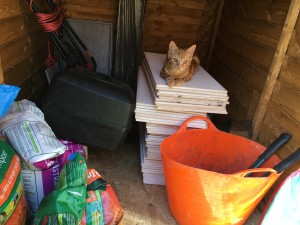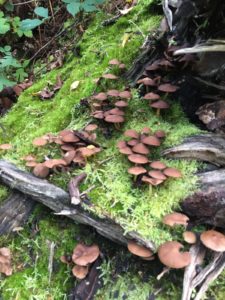SPRING Toxins!!
Spring officially starts on the 20th March this year! After the snow and freezing temperatures we are hoping that the weather takes note and starts to warm so we can all start spending a bit more time outside. There are lots of beautiful things to see and enjoy outside this time of year, but it is worthwhile remembering which of these can be hazardous to our pets…
In the garden:
 Spring is the time when many flowers emerge, and we get busy planting new ones. The following plants can be toxic if ingested, pets should be kept well away and veterinary advice sought if you think your pet has eaten any.
Spring is the time when many flowers emerge, and we get busy planting new ones. The following plants can be toxic if ingested, pets should be kept well away and veterinary advice sought if you think your pet has eaten any.
- Daffodils: contain lycorine which can cause drooling, vomiting, diarrhoea, abdominal pain and in severe cases cardiac arrhythmias and respiratory depression. Ingestion of the bulbs will cause more severe signs than the plant or flower itself, but all contain the toxin.
- Tulips: the toxins in tulips are concentrated in the bulb but are also present in the flower and leaves. Ingestion may cause drooling, vomiting and diarrhoea
- Lilies: these are highly toxic to cats, even a small amount of pollen can cause severe kidney failure.
- Hyacinths, Snowdrops and Crocuses: can also cause gastro-intestinal signs if ingested
 Fertilisers come out of the sheds as we all get busy gardening, but be careful of certain types of fertilisers or ingredients which can be harmful.
Fertilisers come out of the sheds as we all get busy gardening, but be careful of certain types of fertilisers or ingredients which can be harmful.
- Blood Meal: vomiting and diarrhoea, can result in severe pancreatitis
- Bone Meal: consuming large amounts can cause an obstruction in the GI tract
- Rose / Plant Fertilisers: may contain organophosphates which can cause severe symptoms such as seizures, difficulty breathing, hyperthermia and may be fatal.
- Pesticides / Insecticides: often irritants which may inflame the skin and cause itching. Those containing organophosphates may be life threatening
- Iron: often added to fertilisers and can cause iron toxicity if a large amount is ingested. Signs would include vomiting, bloody diarrhoea and can sometimes affect the heart or liver.
Out on walks:
 Mushrooms and Toadstools: there are a variety of species which cause a variety of signs, from gastro-intestinal upset to hallucinations, behavioural changes or even kidney and liver failure. Identification of each species requires expert knowledge. If your pet has eaten a mushroom please try to take a photo of the mushroom, both in situ and close-up. A sample is also helpful to aid in identifying it.
Mushrooms and Toadstools: there are a variety of species which cause a variety of signs, from gastro-intestinal upset to hallucinations, behavioural changes or even kidney and liver failure. Identification of each species requires expert knowledge. If your pet has eaten a mushroom please try to take a photo of the mushroom, both in situ and close-up. A sample is also helpful to aid in identifying it.- Adder Bites: Venom from an adder bit can cause rapid swelling, pain, lethargy and collapse, and can be more severe. They come out of hibernation with the rise in temperature around March and April, they are not normally aggressive but will bite if provoked. They are a protected species so do not attempt to catch them, but seek veterinary advice immediately.
In the kitchen:
- Easter Eggs and Chocolate: contains theobromine which can lead to agitation, excitability, seizures and problems with the heart
- Hot cross buns: contain raisins and currants which can cause kidney failure
- Xylitol: an artificial sweetener often found in mints, some cakes and food for diabetics. Signs include vomiting, lethargy, weakness or collapse, seizures, coma and liver damage
- Family Dinners: food containing onions and shallots can be toxic
- Leftovers: mould on food can cause a variety of signs including drooling, vomiting and diarrhoea.
If you have any concerns that your pet may have ingested any of the above please do not hesitate to contact us on 01606 880 890

